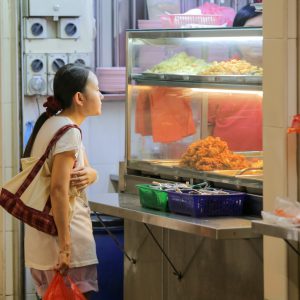Mapping Singapore’s Culinary Landscape: Is Anyone Cooking?
July 11, 2022

The Singapore Food Festival will be held in August 2022. Conceived in 1994 to celebrate Singapore’s food culture, the festival is regularly packed with activities for all ages, including food tours, food symposiums, food tasting booths, exquisite private dining experiences, and food cooking demonstrations. The highlight of the festival in 2019, when it was held in July, was STREAT 2019, where 12 food establishments offered traditional and modern Singapore (Mod-Sin) cuisine held in an al fresco setting at The Promontory.
From heartland hawkers to Michelin starred restaurants, food is closely tied to Singaporean culture. However, as Singaporean women are increasingly involved in the workforce, traditional gender roles such as cooking are being reformed. Thus, in ‘Mapping Singapore’s Culinary Landscape: Is Anyone Cooking?’, a chapter in Food, Foodways and Foodscapes (World Scientific, 2015), Professor Vineeta Sinha (NUS Sociology) examines the responsibilities and struggles of Singaporean women in Singapore’s culinary landscape.
